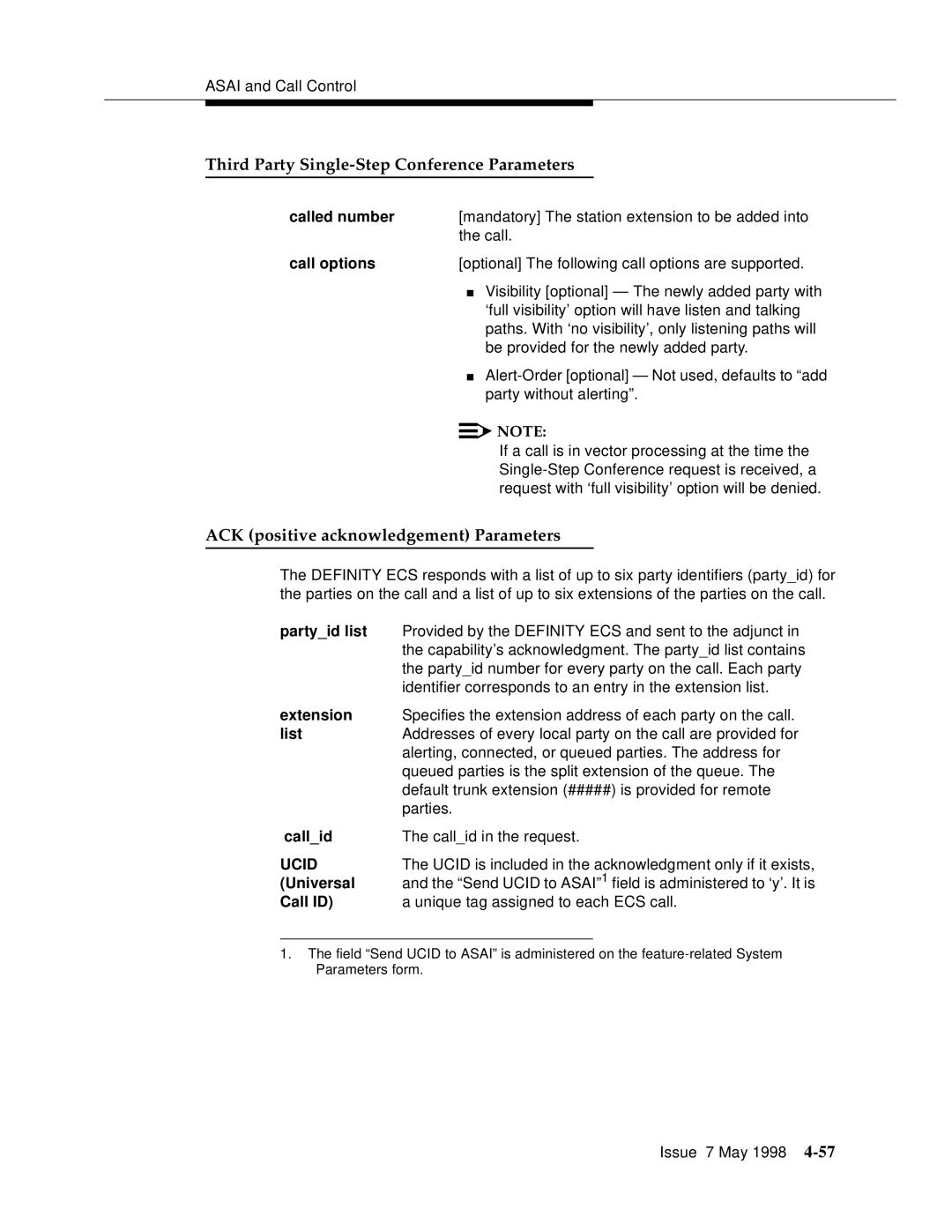
ASAI and Call Control
Third Party Single-Step Conference Parameters
called number | [mandatory] The station extension to be added into | |
| the call. | |
call options | [optional] The following call options are supported. | |
| ■ Visibility [optional] — The newly added party with | |
|
| ‘full visibility’ option will have listen and talking |
|
| paths. With ‘no visibility’, only listening paths will |
|
| be provided for the newly added party. |
| ■ | |
|
| party without alerting”. |
|
| NOTE: |
|
| |
|
| |
|
| If a call is in vector processing at the time the |
|
| |
|
| request with ‘full visibility’ option will be denied. |
ACK (positive acknowledgement) Parameters
The DEFINITY ECS responds with a list of up to six party identifiers (party_id) for the parties on the call and a list of up to six extensions of the parties on the call.
party_id list | Provided by the DEFINITY ECS and sent to the adjunct in |
| the capability’s acknowledgment. The party_id list contains |
| the party_id number for every party on the call. Each party |
| identifier corresponds to an entry in the extension list. |
extension | Specifies the extension address of each party on the call. |
list | Addresses of every local party on the call are provided for |
| alerting, connected, or queued parties. The address for |
| queued parties is the split extension of the queue. The |
| default trunk extension (#####) is provided for remote |
| parties. |
call_id | The call_id in the request. |
UCID | The UCID is included in the acknowledgment only if it exists, |
(Universal | and the “Send UCID to ASAI” 1 field is administered to ‘y’. It is |
Call ID) | a unique tag assigned to each ECS call. |
1.The field “Send UCID to ASAI” is administered on the
